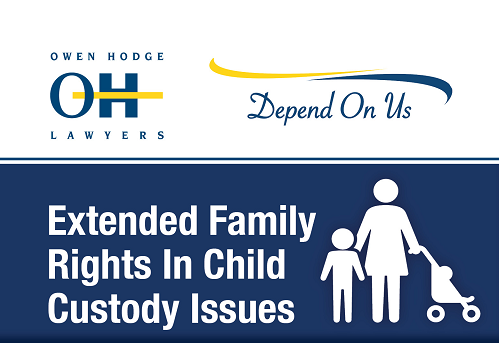
Child custody issues are governed by the Australian Family Law Act of 1975. The primary factor surrounding the determination of the custody and the ongoing care of children, is defining the best interests of the child. In all cases the court encourages the parents to come to their own agreement for shared parenting. However, in some instances the parents cannot agree on a parenting schedule or there are issues with parental competence. Under these circumstances, other family members can apply for a parenting order.

In all child custody cases the court will take two primary issues into consideration. First, the court will always lean toward the child having a meaningful relationship with both parents. The court’s second primary concern is that the child lives in an environment that is free from abuse, neglect and/ or violence. If the parents are able to engage in a stable healthy relationship with the child, then it is highly unlikely that the court will award custody or parenting orders to an extended family member.

However, there are certain circumstances where the court will hear a request for a parenting order from an extended family member. An extended family member can include a step-parent, grandparent, or any other person who has a substantial relationship with the child. In these cases, the biological parents must be a part of the process and all parties must agree on the final parenting order. If the parties cannot agree on a final parenting plan, the court can require all parties to undergo an evaluation with a professional. After the court receives the evaluation, the court and the parents and extended family members can attempt to construct a parenting order that everyone can agree upon and abide by.
For grandparents, the main concern is having the time and the opportunity to maintain their relationships with their grandchildren. In most cases, the parents and the grandparents are able to agree upon a schedule of visitation which will allow children time with both sets of grandparents. However, in the instance that one or both parents creates an obstacle to the children maintaining their relationships with either their paternal or maternal grandparents, the grandparents can file a request for assistance from the court via a parenting order. The court will take into consideration the current nature of the relationship between the children and the grandparents and attempt to create an avenue for the relationships to be maintained.

In some instances, children have had pivotal relationships with their step parents. While the court always favors the biological parents, the nature of a child’s relationship with a step parent, and the continuation of that relationship, can be given significant priority by the courts. Therefore, the court will entertain a request for a parenting order from a step parent. The same issues are taken into consideration. These issues include; the best interests of the child, the step parents right to access the child’s school and medical records, the right to attend school functions, sporting events, birthdays and other special events and extracurricular activities of the child.
The court will strive for three main objectives;.
1) to preserve the child’s relationship with both biological parents
2) to protect the health and well-being of the child
3) to assist the extended family in maintaining their relationships with the children.
All of these issues will always be governed by what is in the best interest of each child, individually.
For further information or inquiries, please contact the offices of Owen Hodge Lawyers. At Owen Hodge, we are always happy to assist clients in understanding the full ramifications of any and all of your legal needs. Please feel free to call us at your earliest convenience to schedule a consultation at 1800 780 770.
